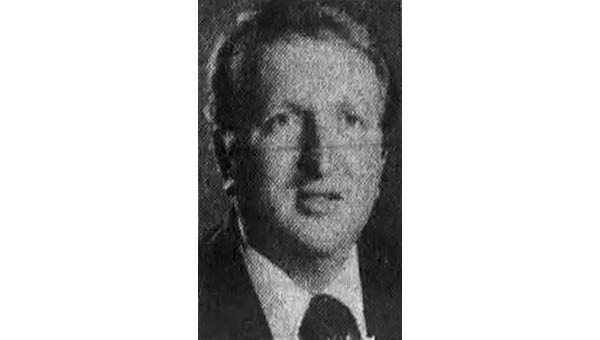A life of service: The R.H. Taylor legacy
Published 4:19 pm Wednesday, July 2, 2025




|
Getting your Trinity Audio player ready...
|
By C.Y. Peters
Star Correspondent
When you speak the name R.H. Taylor in Carter County, it brings to mind a man of humility, hard work and heartfelt service — a true pillar of the community whose story began in the quiet hills of Stoney Creek and left a lasting mark across East Tennessee.
Born and raised in the Stoney Creek community, R.H. Taylor graduated from Unaka High School in 1956. As a proud Unaka Ranger, he wore the maroon and white with pride, playing football for the school and becoming a leader in more ways than one. One of his earliest contributions to his classmates came not from the field but from the stage. R.H. took on a leading role in a senior class play — a performance that helped raise funds for their senior trip to Washington, D.C., an early glimpse of the leadership and generosity that would define his life.
After graduation, Taylor answered the call to serve his country. In 1960, he joined the U.S. Army and remained in service until 1966, instilled with discipline and duty that followed him into every endeavor.
On May 20, 1961, R.H. married Brenda, the love of his life. Together, they built a strong and faithful home grounded in Christian values, mutual respect and love for their community. Over the years, they raised three daughters — Cheri, Joy and Jennifer — instilling in them the same values of service, humility and hard work.
Returning home from the Army, R.H. opened R.H. Taylor’s Store, a beloved local establishment located across from Moore’s Chapel Free Will Baptist Church. It wasn’t just a business — it was a gathering place for neighbors, a community hub run by a man who knew his customers by name. In 1964, he was ordained as a deacon at Moore’s Chapel and began teaching Sunday school, a role he held faithfully for more than 30 years. His deep faith and service to the Lord were the steady foundation of his life.
In 1970, R.H. partnered with Norris Shell to begin Mountain Empire Stables on the Panhandle Road section of Stoney Creek. Their shared love for horses and mountain living created a special place for many families and young riders, adding yet another chapter to Taylor’s diverse and impactful life.
In the early 1970s, R.H. used his local connections and influence to help a young, up-and-coming band named Stonehinge gain recognition in the region. Thanks to his support and networking efforts, the group landed radio airplay and began performing at shows throughout Carter County. It was just one more example of R.H.’s quiet determination to uplift others — whether they were neighbors, students, musicians or public servants.
Outside of work and public service, R.H. remained a deeply involved civic man. He was a proud member of the Masonic Lodge, active in the York Rite, Scottish Rite, Eastern Star and Shriners. He played in the Shrine Band and gave of his time through the Civitan Club, always giving back to his neighbors, whether through service, charity or music.
But perhaps R.H. Taylor’s most public role came in 1978, when at the age of 39, he ran for Carter County road superintendent. The election was one of the most significant in county history. That same year, George Papantoniou was elected as the county’s first four-year sheriff, Goldie Pierce became the first woman elected to a major county office, and Johnny Holder captured more than 10,500 votes for register of deeds. One candidate, Joe Franklin, received just 29 votes and famously quipped, “I want to thank the 29 people that voted for me, and I’m going to pray to the 5,000 that lied to me.”
Despite the high-profile nature of the race, it was R.H. Taylor’s humble grit and hard-earned trust that led him to victory, defeating longtime incumbent J.W. Street, who had held the office since 1958.
As road superintendent, Taylor got straight to work. In his first term alone, he replaced 25 dangerous wooden bridges, paved many long-forgotten hollow roads and rebuilt 48 roads damaged by the devastating 1977 flood. His persistence paid off. In 1982, R.H. was reelected and finally secured state reimbursement for bridges and infrastructure his office had already repaired years earlier. That money, long delayed, came thanks to his unwavering commitment to Carter County.
Taylor’s service extended beyond county roads. He served as president of the trustees of the Carter County Rescue Squad and as chairman of the board of deacons. He was a man of faith and action — a rare combination of compassion and competence.
In 1990, Taylor was reelected in another headline-making election. Paul Peters made history by becoming the first write-in candidate to win a Carter County sheriff’s race, a contest so close it took several days to count. Taylor’s political journey came to a close in 1994 after the primary, but the roads he built and the trust he earned were firmly established.
In his later years, Taylor worshipped and taught at Marbleton Free Will Baptist Church in Unicoi, where he was the adult married Sunday school teacher. No matter where he was in life — at a construction site, in the pews, helping a local band or around the kitchen table — R.H. Taylor gave his full heart to the people around him.
On Aug. 4, 2002, R.H. Taylor died at the age of 63, leaving behind a loving family, a grateful community and a legacy of dedication that will not be forgotten. He was a Ranger, a soldier, a storekeeper, a churchman, a Mason, a civic servant, a public leader — and above all, a man who lived a life full of meaning and service.
Today, when folks drive the winding roads of Carter County, hear the notes of a band playing in a local park or cross one of those sturdy bridges he fought so hard to rebuild, they are unknowingly traveling the legacy of R.H. Taylor — a legacy not written in stone, but paved in service, faith and love for his community.









